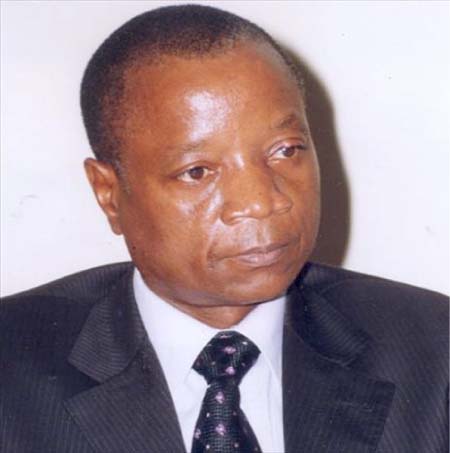
The World Health Organization (WHO), Ageing with a Smile Initiative (ASI) in collaboration with the Ministry of Health and Social Welfare last Saturday joined the world in commemorating World Health Day at a ceremony at the Fajikunda Heath Center.
Health Minister Fatim Badjie prepared a launching statement for the event, which was read by Permanent Secretary of the Ministry of Health and Social Welfare, Yaya Sireh Jallow. Mr Jallow said: “The event is part of a global campaign, inviting everyone global leaders to the common man in countries to focus on single health challenging with global impact.”
According to him, the event also provides the opportunity to start collective action in the protection of people’s health and wellbeing”.
PS Jallow told the gathering that his Ministry will continue to work with WHO and other development partners to promote healthy lifestyles, to protect and save lives and alleviate disability and pain in old age among others.
“As we commemorate this year World Health Day, my Ministry under that wise and dynamic leadership of president Jammeh, is strongly committed to go beyond awareness raising to pursue positive and concrete initiatives and interventions,” PS Jallow stated.
In the Gambia, PS Jallow revealed, the ageing population is consistently increasing around 5% of the population due primarily to improved socio economic status of the population and health services, the health risks associated with ageing are Hypertension, Diabetes, Cancers, Dental problems, Mental disorders and problems relating to bones”.
This year’s campaign, he went on, aims to engage all of society from policy makers and politicians to the elderly and the youths to take appropriate steps and acknowledge the elderly as valued resources and facilitate their full participation in national development.
He noted that it is important to know that aged people are a valuable resource to our societies and should equally feel valued, good health throughout life helps us make the most of the positive aspects of ageing”.
PS Jallow added that societies that take care of their aged populations and support their active participation in daily life will be better prepared to cope with the ever-increasing challenges of life. He therefore challenged everyone to promote and engage in healthy lifestyles, namely taking regular exercise, eating healthy, drinking healthy and keeping clean. PS Jallow finally thanked stakeholders and the WHO for their support.
The WHO country representative, Dr Thomas Sukwa, revealed that, “the world population is rapidly ageing: Between 2000 and 2050, the proportion of the world’s population over 60 years will double from about 11% to 22%. The number of people aged 60 years and over is expected to increase from 605 million to 2 billion over the same period. The main health burdens for older people are mainly non-communicable diseases. Already, even in the poorest countries, the biggest killers are heart disease, stroke and chronic lung disease, while the greatest causes of disability are visual impairment, dementia, hearing loss and osteoarthritis”.
Dr Sukwa said that the need for long-term care is rising and the number of older people who are no longer able to look after themselves in developing countries is forecast to quadruple by 2050.
“Many of the very old lose their ability to live independently because of limited mobility, frailty or other physical or mental health problems. Many require long-term care, including home-based nursing, community, residential and hospital-based care. Supportive ‘age-friendly’ environments allow older people to live fuller lives and maximize the contribution they make,” he stated.
Creating ‘age-friendly’ physical and social environments, he added, can have a big impact on improving the active participation and independence of older people.
Dr Sukwa concluded by saying, “the establishment of Ageing with a Smile Initiative (ASI) in The Gambia is a clear demonstration of the concern citizens have for the welfare of the elderly. I therefore thank the pioneers of ASI for this initiative, and wish to assure them that the WHO will continue to work closely with the association through the Ministry of Health and Social Welfare in advancing the welfare of the elderly in the Gambia”.
According to the ASI Secretary General Balla Musa Joof, the work of ASI is supported by three solid pillars: ASI members, ASI volunteers and ASI supporters. Mr. Joof noted that from January 2010 to December 2011, the organization implemented a pilot project in the Greater Banjul area focusing on the provision of free community-based screening and consultations, provision of home-based care for the older living with chronic health conditions, promoting intergeneration dialogue and opportunities for older persons to meet and socialize with their peers and advocacy and the creation of awareness of the plight of the elderly in The Gambia.
Mr Joof said that during the pilot period of the initiative, ASI successfully conducted seven screening programs reaching over 600 older persons in five locations.
Mr Joof thanked the Ministry of Health and Social Welfare and WHO for the support given to ASI.



